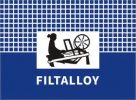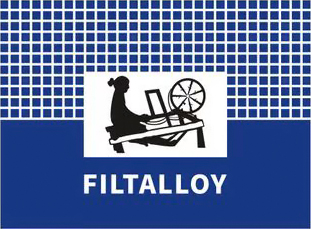Both titanium sintered fiber felt and nickel sintered fiber felt are porous metal materials, with unique three-dimensional structures. But due to differences of titanium and nickel in the physical and chemical properties, there are significant differences in performance and application.
Titanium has stronger corrosion resistance than general metal materials in acidic environments. So Titanium sintered fiber felt is mainly used in PEM water electrolysers of hydrogen generators.
Nickel sintered fiber felt has high porosity and high surface area, which is particularly suitable for the irregular porous structure in AEM electrolysers of hydrogen generators. The incomparable advantages of it is high surface area and extremely uniform contact area. Therefore, nickel sintered felt is often used as a diffusion layer in AEM electrolysers. Nickel fiber felt has good ability of resistance high temperature and pressure. The weight is light, which could be cut according to customer’s dimension requirement.
For both titanium and nickel, the fiber elasticity recovery is very good. Both titanium sintered fiber felt and nickel sintered fiber felt can be reused through reverse blowing and ultrasonic cleaning.
The following are the key is a key performance comparison between the two sintered fiber felt.
1. Comparison of physical performance
| Item | Titanium Sintered Fiber Felt | Nickel Sintered Fiber Felt |
|---|---|---|
| Melting Point (℃) | 1688 | 1455 |
| Density(g/cm3) | 4.5 ( low) | 8.9 (high) |
| Thermal conductivity | Less than Nickel felt | Good |
| Conductivity | Less than Nickel felt, with high resistivity | High, with low resistivity |
| Strength | High strength and good mechanical properties. Even if subjected to strong liquid flushing or vibration, the fibers don’t easily fall off | Pure nickel has low strength, but nickel alloy can enhance the strength |
| Flexibility | Good, under a certain degree of bending and stretching without damaging | Nickel fiber has strong extensibility and can be made into flexible felt such as bending seals |
2. Corrosion Resistance of Chemical Performance
| Item | Titanium sintered fiber felt | Nickel sintered fiber felt |
|---|---|---|
| Oxidation resistance | Good. A passive film titanium oxide (TiO2) is formed on the surface to protect it. | Not good. It’s easy to be oxidized by chlorine (Cl2),nitric acid (HNO3), etc..... |
| Resist sea water and salt spray | Strong corrosion resistance | Possible formation of corrosion spots |
| Alkali Resistance | Resist strong alkali, such as sodium hydroxide (NaOH) and potassium hydroxide (KOH) | Strong alkali resistance, superior to titanium |
| Acid Resistance | Resist strong acid, inchulding hydrogen chloride(HCL), sulfuric acid (H2SO4), nitric acid (HNO3), except hydrofluoric acid (HF) | Resistant to non oxidizing acids, such as hydrogen chloride (HCL). But it’s easily corroded by nitric acid and cannot be replaced in high temperature and corrosive environments |
Therefore, titanium sintered felt is more stable in oxidative and chloride environments, such as seawater and bleaching agent. It is more suitable for chemical and marine engineering.
Nickel sintered felt is more suitable in reducing and alkaline environments. But it is prone to deterioration in high-temperature oxidative environments.
3. High Temperature Resistance Comparison
- Titanium sintered fiber felt has strong high-temperature oxidation resistance. The continuous use temperature can reach 400-500℃. The short-term temperature can reach 800℃. It can maintain strength at high temperatures, but hydrogen embrittlement may occur. When using it, pls avoid a hydrogen-rich environment.
- Nickel sintered fiber felt performs well in high-temperature environments. Nickel alloy could be used up to about 1000℃. Nickel felt is easy to oxidize, and regenerates into NiO at high temperatures. To keep long-term use, pls inert gas or alloying.
4. Porosity and Filtration
- Titanium sintered fiber felt: The porosity of titanium felt is usually 50%-80%, which is adjustable according to the customer’s application. It has a wide range of pore size distribution: coarse filtration of 10-100 microns for dust filtration and catalytic carrier, fine filtration of less than 10 microns for medical sterilization and oil purification. It has medium air permeability. But the titanium fiber has high rigidity.
- Nickel sintered fiber felt: The porosity of nickel felt is similar to that of titanium sintered fiber felt. But it is easier for the process of sintering and densification. It has a more uniform pore size distribution. Nickel fiber has better ductility, higher air permeability, good flexibility, and pore connectivity than titanium felt. Moreover, nickel fiber felt is easier to achieve ultra-fine pores less than 1 micron, which is suitable for high-precision filtration.
5. Special Functional Differences
- Biocompatibility: Titanium is non-toxic and compatible with the human body. It is often used in medical entrances. In comparison, nickel may cause allergies because Ni²⁺ ion release.
- Electromagnetic shielding: The magnetism of nickel (nickel-based alloy) is suitable for electromagnetic shielding; titanium is non-magnetic.
- Catalytic properties: Nickel itself is a catalyst. For example, it is used in a hydrogenation reaction. Titanium requires a surface finish to have catalytic activity, such as platinum plating.
6. Cost and processing
- Raw material cost: Nickel price fluctuates greatly, which is affected by the international market. And the cost of high-purity titanium is higher than nickel.
- Processing difficulty: Titanium alloy processing technology is relatively complex, requiring high temperature and high pressure, a vacuum environment to prevent oxidation and other difficult processes. has a high technical content in the application field.
The raw material cost of nickel is low. The processing of nickel felt is relatively easy. It can be sintered in the air, but oxygen control is required. And it has lower requirements on processing technology and equipment. So the cost is lower than titanium sintered fiber felt.
7. Application Selection Suggestions
- Titanium sintered fiber felt: It’s used in strong corrosion environments such as chemical industry, seawater, medical implants, and lightweight aerospace parts. For example, titanium sintered fiber felt is used as a diagram in water electrolysers in hydrogen generator. It’s very good to resistant anodizing.
- Nickel sintered fiber felt: It’s used in an alkaline environment, high temperature reducing atmosphere, electromagnetic shielding, and catalytic reaction. For example, Nickel sintered fiber felt is used in alkaline battery electrodes of a fuel cell.
Conclusion
Please make a comprehensive selection based on the corrosive, temperature, and medium of specific working conditions. Pls also consider your cost budget. If you are still unsure which material is suitable for your specific application, pls contact us to receive personalized advice and solutions tailored to your unique industrial demand.


